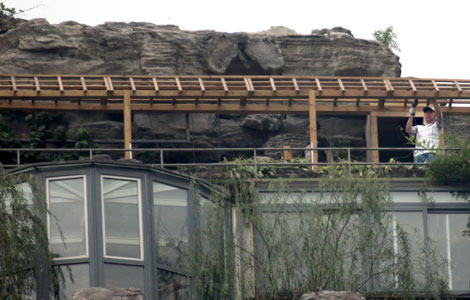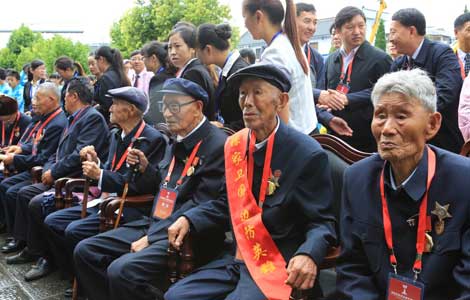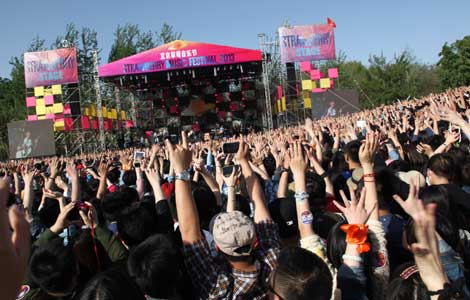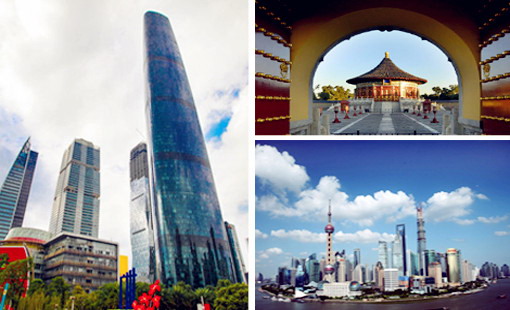Steps forward, and a step back
Updated: 2013-08-16 08:52
By Wang Yiqing (China Daily)
|
||||||||
However, one article has proved to be a bad apple in the barrel. Article 48 has sparked a furious public outcry, as it is regarded as a regressive move. The article would restrict the filing of public interest lawsuits to a government-affiliated body, the All-China Environment Federation and its provincial-level subsidiaries. This has been fiercely criticized by experts, NGOs and the public, who claim the article undermines the purpose of the amendment.
Certainly it is rare to see a law directly empower a single organization in its articles in this way. And making a single organization the sole vehicle for the public's interests hinders public participation, especially the participation of environmental protection NGOs, in protecting the environment.
Less than 1 percent of environmental disputes have been settled through judicial channels since 1996, a retired official with the environment ministry told State media last year. Giving the federation a monopoly on environmental litigation is unlikely to change that, as its relations with the government mean it will not be independent, especially since it is environment protection departments at all levels that are being taken to court.
The federation's complicated relations with the environmental protection authorities and enterprises have led to accusations that it covers up for polluters and engages in rent-seeking. The federation's ties with enterprises have also caused concern. There have been media reports that some polluting enterprises pay membership fees to the federation. The federation also runs a company named ACEF (Beijing) Environment Protection Co Ltd, which provides environmental assessment services to construction projects.
Moreover, as a country with vast territory and a huge population, it is unfeasible to expect the All-China Environment Federation and its eight local federations to be able to cope with countless, time-and-money consuming cases involving the public interests. Grassroots environmental protection NGOs, which are more familiar with local situations, have fewer conflicts of interests and are more accessible to the public, should also be able to bring environmental cases to court in the public interest. Closing the day on them is counterproductive.
Therefore it is imperative that there is a revision to article 48 of the second amendment so that legally registered environmental protection groups are also allowed to act in the public's interests in court proceedings. And it is expected that amended law itself will be put into effect at an early date.
The author is a writer with China Daily. wangyiqing@chinadaily.com.cn
(China Daily 08/16/2013 page8)

 Demolition work starts on rooftop villa structure
Demolition work starts on rooftop villa structure
 Thrills in store for Chicago Air and Water Show
Thrills in store for Chicago Air and Water Show
 Memorial to expeditionary soldiers opens
Memorial to expeditionary soldiers opens
 Death toll from Egypt violence rises to 638
Death toll from Egypt violence rises to 638
 Tunes that travel
Tunes that travel
 Macabre Addams Family tests musical tastes
Macabre Addams Family tests musical tastes
 Spielberg has desire to work with Zhang Yimou
Spielberg has desire to work with Zhang Yimou
 Li Na advances to 3rd round at Cincinnati Open
Li Na advances to 3rd round at Cincinnati Open
Most Viewed
Editor's Picks

|

|

|

|

|

|
Today's Top News
No remorse as Abe marks surrender anniversary
China to be world's No 1 consumer
China Mobile looks to data services
Beijing, Moscow hail military ties
Japan exports to China at lowest in four years
Fish ecosystem 'on verge of collapse'
First public rental housing fund launched
Trimming standard ideas of butchering
US Weekly

|

|








